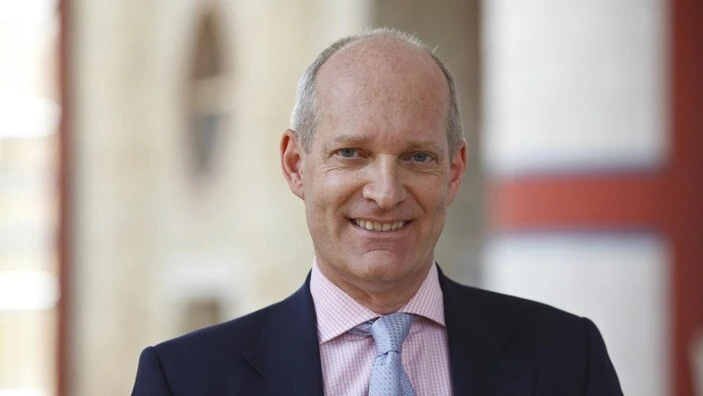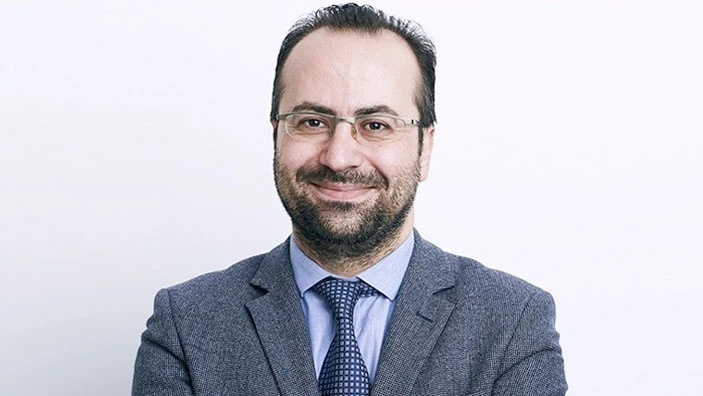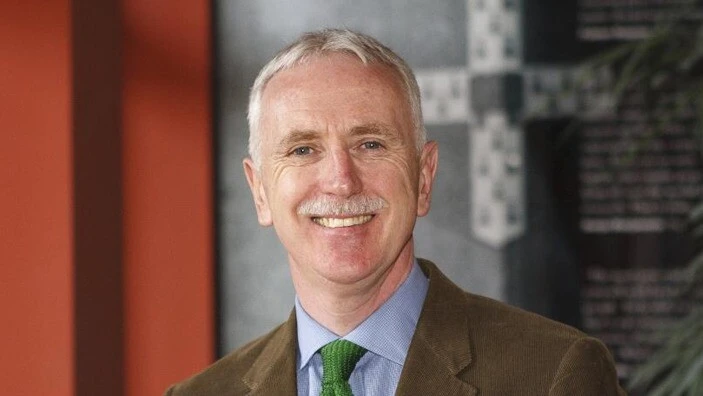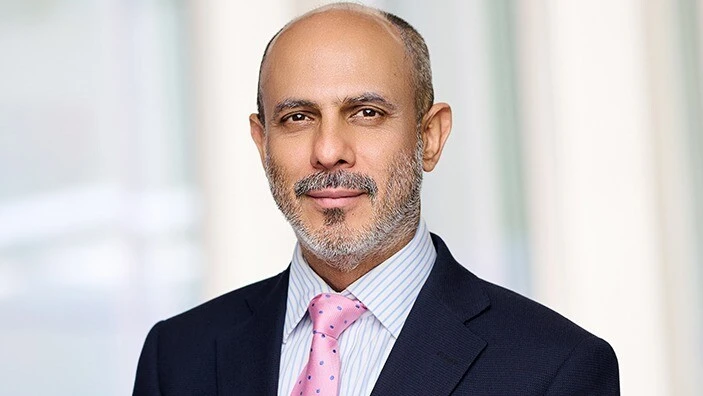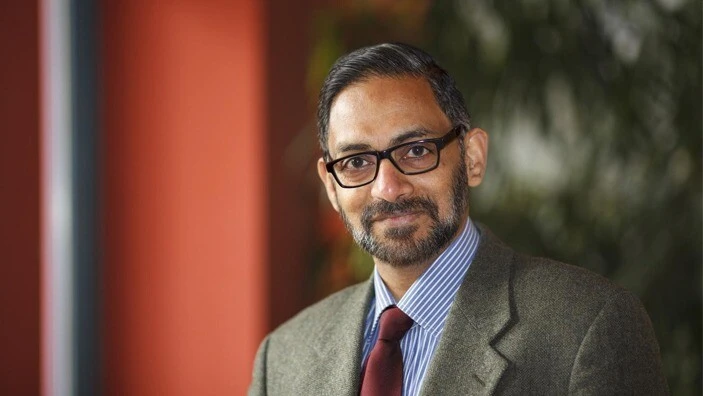Live, learn, apply – succeed
Supercharge your finance career with our globally recognised Master of Finance (MFin) programme. Gain a deep understanding of key finance elements in our rigorous curriculum, covering theoretical foundations and cutting-edge industry issues.
Apply your new knowledge in real-world projects with international finance clients and develop a comprehensive view of the ever-changing finance industry. Designed in collaboration with industry experts, the MFin provides the resources and support you need to excel and advance in your finance career.

Programme highlights

Learn by doing
Engage in exciting project work, collaborating directly with real-world clients in the international finance sector to apply your theoretical knowledge in practical settings.

Customisable experience
Strengthen your existing knowledge of finance, while tailoring your education through a combination of courses, projects and electives.

Network for success
Designed in consultation with the banking and finance industry, the Master of Finance provides a rigorous, commercially relevant programme and access to a global network.
Stay ahead of the latest industry developments
We are continually developing the programme to meet the needs of students and to address the fast-paced evolution in the financial markets they work in. Our aim is to ensure that students are well equipped with the skills and tools that would give them the best chance of succeeding in their future finance careers and to enhance their level of preparedness and employability. We have developed our course content in areas such as financial technology, artificial intelligence, sustainable finance and ESG.
Learn more about our focus on finance technology, artificial intelligence and sustainability
Academic outline
- Michaelmas term (September – December)
- Vacation/project time (December – January)
- Lent term (January – March)
- Vacation/project time (March – April)
- Easter term (April – June)
- Summer (June – August)
Michaelmas term (September to December)
Induction
A 2-week period designed to get to know Cambridge, your fellow students, and the MFin team. Students also undertake maths and statistics refresher classes in addition to sessions on macroeconomics and corporate finance.
Core courses
- Introduction to Derivatives
- Economic Foundations of Finance
- Financial Institutions and Markets
- Financial Reporting and Analysis
- Principles of Finance
- Management Lecture Series
- Management, Leadership and Ethics
- City Speaker Series
City Speaker Series
The City Speaker Series provides a further stream of practical financial expertise throughout the degree. It gives you regular networking opportunities with finance professionals. The speakers are experts in applied finance.
Personal and Professional Development programme
The MFin careers service is designed to help you gain the insights and skills needed to succeed in your career. The careers programme encompasses one-to-one coaching, soft skills job search workshops, interview success and supporting professional development. This culminates in recruitment and networking events, including alumni panels.
Vacation/project time (December to January)
Equity/Research project
In groups, you are assigned a listed company on which you are required to undertake a stock valuation exercise. You produce an equity research report outlining your valuation methodology, investment thesis and a recommendation to buy or sell shares in this company. The project culminates in a presentation followed by a panel Q&A, simulating a real-life morning call.
Lent term (January to March)
Core courses
- Econometrics
- Fundamentals of Credit
- Management Lecture Series (continued)
- Management, Leadership and Ethics (continued)
- City Speaker Series (continued)
Electives
- Advanced Corporate Finance
- Advanced Financial Accounting
- Advanced Interest Rate Derivatives
- Behavioural Finance (course parented by the MBA programme)
- Fixed Income Analysis
- Infrastructure Finance
- New Venture Finance
- Private Equity
- Quantitative Asset Allocation
- The Circular Economy
- Topics in Investment Management
*Please note the running order and specific electives on offer may change from year to year.
City Speaker Series
The City Speaker Series provides a further stream of practical financial expertise throughout the degree. It gives you regular networking opportunities with finance professionals. The speakers are experts in applied finance.
Personal and Professional Development programme
The MFin careers service is designed to help you gain the insights and skills needed to succeed in your career. The careers programme encompasses one-to-one coaching, soft skills job search workshops, interview success and supporting professional development. This culminates in recruitment and networking events, including alumni panels.
Vacation/project time (March to April)
Group Consulting Project
The Group Consulting Project provides a chance for you to work on a real assignment for a host company or organisation. The project offers a great opportunity to put into practice new ideas that you have encountered on the MFin, and to get experience in sectors and roles you are interested in.
Easter term (April to June)
Core courses
- Management Lecture Series (continued)
- City Speaker Series (continued)
Students can choose from a wide range of electives, including:
- Algorithmic Trading
- Advanced Credit
- Asian Capital Markets
- Blockchain and Digital Assets
- Financial Entrepreneurial Acquisitions
- Further Econometrics: Time Series
- Impact Investments and Finance: Applied Models
- Liquid Alternatives and Hedge Funds
- Sustainable Finance
- The Purpose of Finance
- Venture Capital and the Entrepreneurial World (course parented by the MBA programme)
- International Finance and Exchange Rates
- Mergers and Acquisitions
*Please note the running order and specific electives on offer may change from year to year.
City Speaker Series
The City Speaker Series provides a further stream of practical financial expertise throughout the degree. It gives you regular networking opportunities with finance professionals. The speakers are experts in applied finance.
Personal and Professional Development programme
The MFin careers service is designed to help you gain the insights and skills needed to succeed in your career. The careers programme encompasses one-to-one coaching, soft skills job search workshops, interview success and supporting professional development. This culminates in recruitment and networking events, including alumni panels.
Summer term (June to August)
In the summer, there are a variety of activities you can choose from, such as an internship or work placement based on your own interest area, or taking part in a research or business/consulting project (individual or group, self-sourced or advertised through the programme).
You can also sign up for a number of elective courses such as:
- International Macroeconomics and Finance
- Financial Innovation in Emerging Markets
- Wealth Management
- Machine Learning for Finance Practitioners
We also ask you write up a a 1,000 word report reflecting on your MFin experience and learning outcomes.
Any additional costs incurred as part of the summer activities, such as travel (flights, visas, etc.) or related expenses, must be covered by the students.
Assessment is through a mix of exams, written assignments, attendance at events, and presentations. Assessment methods vary by module, with some modules using a combination of methods. Students are assessed in both individual and group work.
Teaching is typically delivered through formal lectures, participative workshops and case learning. The Cambridge MFin aims to foster a learning environment where ideas can be generated and discussed and we expect students to contribute actively to this environment.
Core courses
Reinforce your finance fundamentals. Our core courses provide a solid foundation for your Masters journey.
Electives
Customise your learning with a choice of electives – specialist skills from asset management and corporate finance to algorithmic trading and digital assets.
City Speaker Series
Hear from industry experts on the latest market trends and network with top finance practitioners in the weekly City Speaker Series.
The overall learning experience on Cambridge Judge’s Master of Finance programme was truly unparalleled. The academically rigorous yet highly practical coursework, delivered by world-renowned faculty, fostered deep intellectual and professional growth with real-world applicability. Immersed in a vibrant community of industry leaders, accomplished alumni, and brilliant peers, I gained profound insights into the intricacies of global finance and access to invaluable connections worldwide.
Master of Finance pathways
Tailor your MFin and study the courses that relate most closely to your chosen career pathway. Our electives are designed to allow students to cover specific product areas, techniques, and advanced quantitative skills in line with their career aspirations.
Pursue a career in a corporate finance advisory or similar role that requires a strong understanding of corporate valuation metrics.
Take a career path in a highly analytical finance role, such as in risk management, sales/trading, hedge funds, quantitative asset selection/optimisation, global markets and fintech.
Get to grips with different asset classes, and develop your investment management skills for portfolio construction.
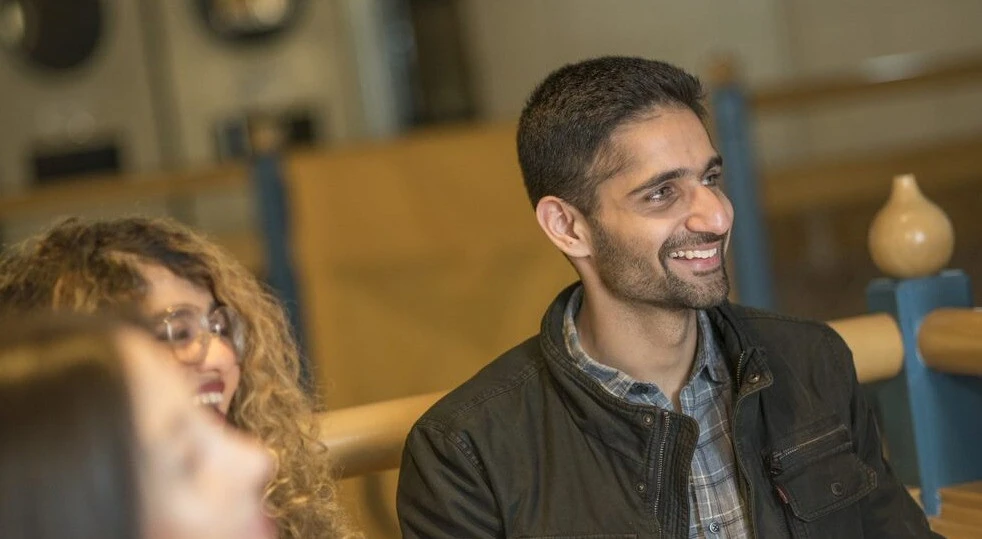
The learning experience
Engage in a practical learning experience while you interact with other students, faculty and speakers in a collaborative environment.
Hear about the latest issues on a wide range of finance subjects from inspirational industry speakers who are specialists in their fields.
Learn financial model building best practice through a series of hands-on exercises.
Build your toolkit for success across broader business areas relevant to your work in finance. Attend workshops to strengthen your interpersonal skills and professional development.
Learn from finance faculty with practised expertise in investment and financial decision-making. Be inspired by their latest research across the finance spectrum – from corporate governance to financial markets.
Tailor your professional development through a programme of workshops and one-to-one coaching sessions to achieve your professional objectives.
Collaborate with class colleagues in seminars and projects – and interact with finance practitioners. Benefit from relevant and practical finance teaching, as well as networking opportunities
Apply your learning to a real workplace setting by completing research through group or individual projects that allow direct contact with industry clients. In your Equity Research project, you’ll write and present an investment plan on a listed company. The Group Consulting Project gives you a chance to work on a real assignment for a host company – sometimes outside the UK. An optional individual project could see you complete valuable work experience or a research dissertation.
Learn from valuable case study examples. Discuss what went right and wrong and how lessons learnt might apply to your finance work.
Most of your fellow students have at least four years of experience as finance professionals. Teaming up in a study group, you’ll be able to exchange ideas and work on finance projects that benefit from a collaborative approach.
The CFA (Chartered Financial Analyst) Institute is a not-for-profit organisation that promotes standards in the investment industry and offers educational and career resources for investment professionals. It has branches around the globe and over 100,000 members worldwide.
The Cambridge MFin degree is an accredited CFA programme partner. This means that the CFA Institute recognises that the MFin curriculum incorporates a large part of the CFA Level I curriculum. It enables students to gain a well-rounded understanding of a broad spectrum of finance disciplines—ranging from asset management to venture capital.
MFin students also have access to a wide range of CFA resources, including webinars, the latest financial research publications and CFA Society events.
To become a member of the CFA Institute, students follow a programme of self-study covering a prescribed curriculum and take exams at CFA Levels I, II and III.
CFA scholarships
The partnership provides a small number of scholarships to MFin students each year. This covers the cost of registering with the CFA Institute and entering the CFA Level I–III exams. Scholarship recipients also benefit from access to study resources.
Be inspired by guest lecturers and visiting professors from the world of international finance. The City Speaker Series delivers insight into the latest hot finance topics.
Gain valuable networking skills through interaction and practice with your fellow course participants – all finance career professionals – plus opportunities to meet industry experts and finance employers. Learn lessons from your fellow MFin alumni.
In the summer, there are a variety of activities you can choose from, such as an internship or work placement based on your own interest area, or taking part in a research or business/consulting project (individual or group, self-sourced or advertised through the programme). You can also sign up for a number of elective courses, take part in the summer programme at Tsinghua University, China, or embark on the International Business Study Trip (location to be confirmed for 2024/25). We also ask you write up a 1,000 word report reflecting on your MFin experience and learning outcomes. Any additional costs incurred as part of the summer activities, such as travel (flights, visas, etc.) or related expenses, must be covered by the students.
Collaborate with one of the interdisciplinary research centres based at the School. Students will have the opportunity to work with research centres spanning a wide range of business- and finance-related subject areas, including the Centre for Risk Studies, the Circular Economy Centre, the Centre for Endowment Asset Management and the Cambridge Centre for Alternative Finance.
Learn how MFin alumni have contributed to real-world research during their MFin degree
World-class research and teaching
Fellow of St Catharine’s College
PhD (University of London)
Pedro holds an honorary title from Cambridge Judge Business School.
Director of the MPhil in Finance Programme
Co-Director of the Centre for Endowment Asset Management (CEAM)
Co-Director of the Centre for Endowment Asset Management (CEAM)
PhD (London School of Economics)
PhD (INSEAD)
PhD (University of Cambridge)
External lecturers
Dr Alejandro Reynoso
Dr Alejandro Reynoso teaches the Machine Learning for Finance Practitioners programme on the MFin.
He holds a PhD in Economics from MIT and his career combines teaching, research, and practice. He has spent the last 25 years leading institutional change and financial innovation in Latin America.
His academic activity emphasises the creation of interactive materials for training financial professionals in the use of mathematics and computational methods in the areas of machine learning, decentralised finance, algorithmic trading, and investment banking.
He is a founding partner and Chairman of the Board of one of the first Blockchain-Investment-Banking advisory firms in Latin America, based in Peru, participating in projects encompassing real estate, reforestation, and professional sports.
Previously, he was the project leader of initiatives such as the Reform of the Pension System in Mexico, the creation of the Systemic Risk Management Unit at the Mexican Central Bank, the corporate reorganisation and IPO of the Mexican Stock Exchange, the implementation of the first ETFs in Colombia, Mexico and Peru in the Long-only, Inverse and Leveraged and Fixed Income segments; he led the establishment of the REIT Industry in Mexico.
He has worked in high-level executive positions for the Ministry of Finance of Mexico and the Mexican Central Bank, the Mexican Stock Exchange, Barclays Global Investors, Evercore Partners, and Grupo Televisa.
He founded and listed the first real estate internally managed REIT in Mexico, where he was a General Partner and Chairman of the Control Group. In 2021, this company merged with Skyway Equities, one of the largest real estate developers and operators in Latin America, where he now co-heads its Investment Banking Unit.
He has been awarded twice the Banamex National Prize of Economic Research in Mexico. He was a Visiting Scholar at the National Bureau of Economic Research in 2001, and since 2014 he has taught the following courses at Cambridge Judge Business School, University of Cambridge:
- Algorithmic Trading
- Mathematical Foundations of Fintech
- Machine Learning for Financial Practitioners
- Financial Innovation in Emerging Markets.
He has also taught at ITAM in Mexico for 16 years.
JC de Swaan
JC de Swaan teaches the Asian Capital Markets elective course on the Cambridge MFin programme.
u003cp class=u0022paragraphu0022 style=u0022vertical-align: baseline; margin: 0cm 0cm 8.0pt 0cm;u0022u003eu003cspan class=u0022normaltextrunu0022u003eJC de Swaan teaches the Asian Capital Markets elective course on the Cambridge MFin programme. He is also a lecturer in the Economics Department at Princeton University. u003c/spanu003eu003c/pu003ernu003cp class=u0022paragraphu0022 style=u0022vertical-align: baseline; margin: 0cm 0cm 8.0pt 0cm;u0022u003eu003cspan class=u0022normaltextrunu0022u003eSeparately, JC de Swaan is a Partner at Cornwall Capital, an investment fund based in New York. Prior to Cornwall, he was a senior advisor on China at a global macro fund and an investment professional at an Asia-dedicated hedge fund. Prior to that, JC de Swaan worked at McKinsey u0026amp; Company.u003c/spanu003eu003cspan class=u0022eopu0022u003e u003c/spanu003eu003c/pu003ernu003cp class=u0022paragraphu0022 style=u0022vertical-align: baseline; margin: 0cm 0cm 8.0pt 0cm;u0022u003eu003cspan class=u0022normaltextrunu0022u003eJC de Swaan received his Bu003cspan style=u0022color: #d13438;u0022u003e.u003c/spanu003eAu003cspan style=u0022color: #d13438;u0022u003e.u003c/spanu003e from Yale University in Political Science, an MPhil in International Relations from the University of Cambridge, and a Master in Public Policy from Harvard University’s Kennedy School. He is a Member of the Council on Foreign Relations and an Associate Fellow of Ezra Stiles College, Yale University. He is the author of u003c/spanu003eu003ca href=u0022https://www.amazon.com/JC-Swaan/dp/110847313X/u0022 target=u0022_blanku0022u003eSeeking Virtue in Finance: Contributing to Society in a Conflicted Industryu003c/au003eu003c/pu003e
The above faculty are subject to change.
Embark on a learning journey that goes beyond the ordinary. Our exceptional faculty comprises around 80 individuals who combine cutting-edge research and transformative teaching to ignite your potential and enable your future of success.
Learn more about the impact of our research
Connect with your Finance faculty – experts in a range of financial fields who have leading roles in 8 Cambridge research centres dedicated to finance. Faculty on the finance subject group have worked with several high-profile organisations. Tap into their knowledge of current research, policy and practice







